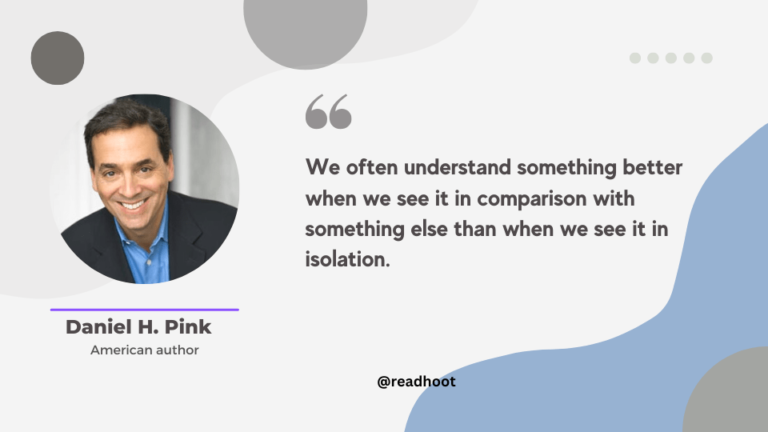Looking for the top Daniel Pink quotes for your inspiration? Do not look any further. We have come up with a list of the greatest quotes by Daniel H. Pink that will make you better in life and inspire you to become even better. From the outset, you are aware that autonomy, mastery, and purpose are the three things that motivate creative people.
Daniel H. Pink is a fêted American author born in Columbus, Ohio in 1964. His 7 books have already sold more than 2 million copies in the world today and translated into more than 30 world languages. If you watched National Geographic Channel in 2014, you would have noticed that Dan was the host and co-executive producer of the popular social science TV program series called Crowd Control.
And since you are here for Daniel Pink Quotes, there is nothing better to set the ball rolling than using the same person to prepare you for a short journey through quotes that will not only center on psychology but also leadership and motivation.
Some Daniel Pink facts;
- Daniel Pink’s best-known books are To Sell is Human and Drive: The Surprising Truth About What Motivates Us.
- 5 of his greatest books have been The New York Times bestsellers and therefore quite popular with readers worldwide.
- Between 1995 and 1997, Dan was the chief speechwriter for the Vice President of the United States, Al Gore.
Daniel Pink Quotes About Motivation & Leadership
Control leads to compliance; autonomy leads to engagement.
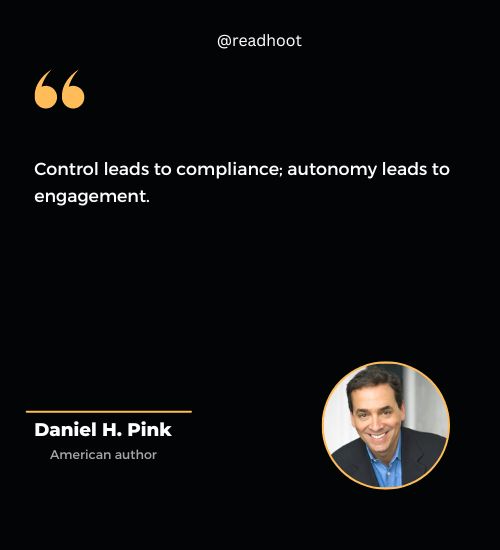
Greatness and nearsightedness are incompatible. Meaningful achievement depends on lifting one’s sights and pushing toward the horizon.
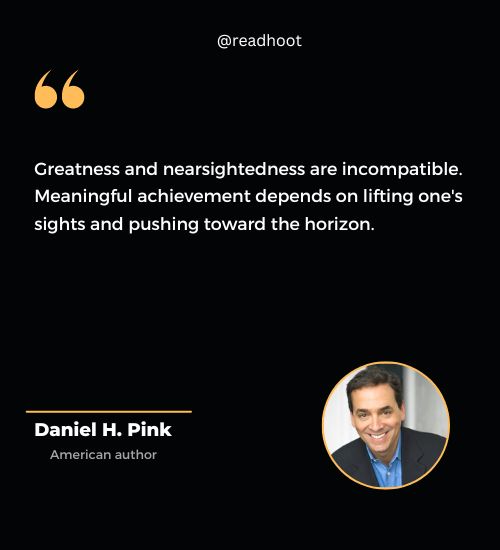
Being a professional is doing the things you love to do, on the days you don’t feel like doing them.
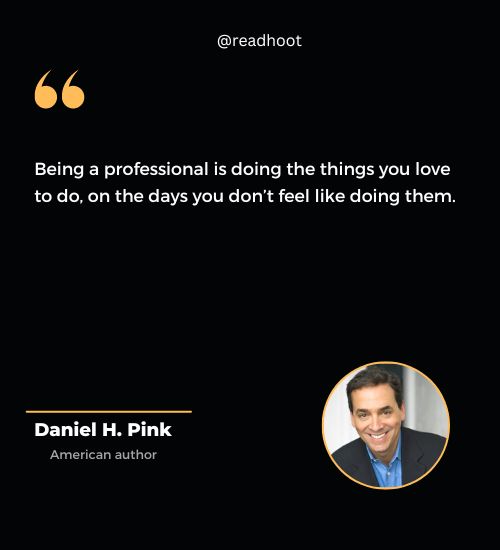
Too much negative emotion, of course, is debilitating. But too little is also destructive.
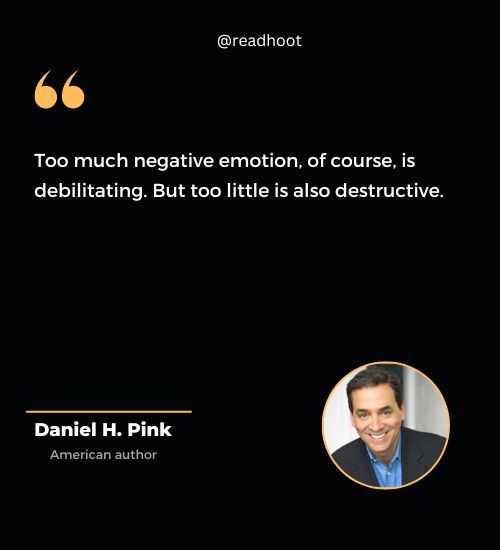
What you decide not to do is probably more important than what you decide to do.
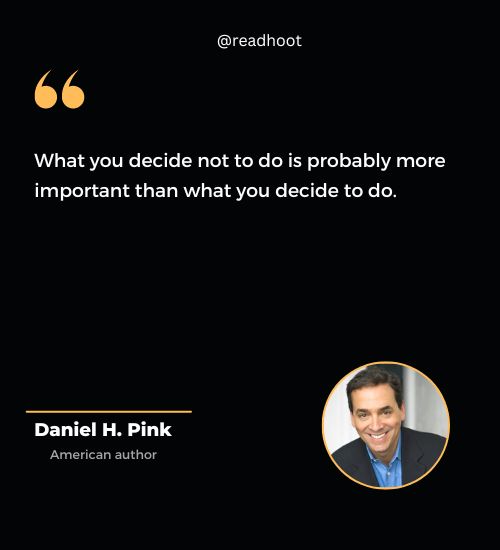
Regret makes us human. Regret makes us better.
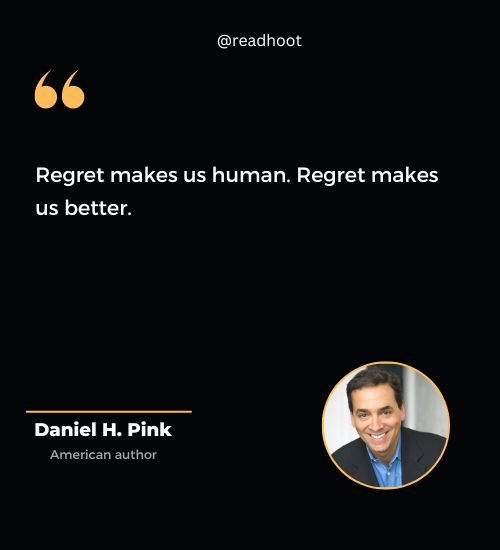
Design. Story. Symphony. Empathy. Play. Meaning. These six senses increasingly will guide our lives and shape our world.
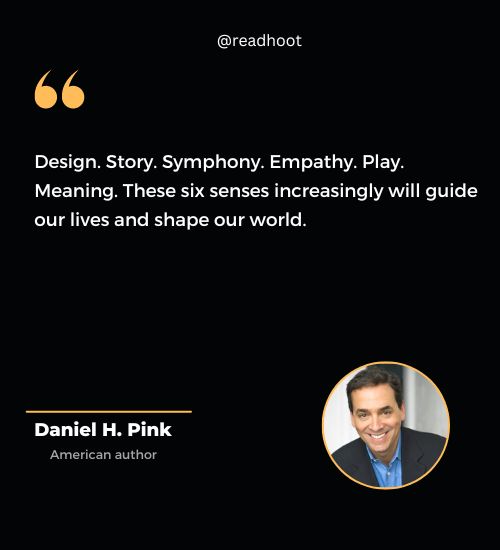
Breaks are not a sign of sloth but a sign of strength.
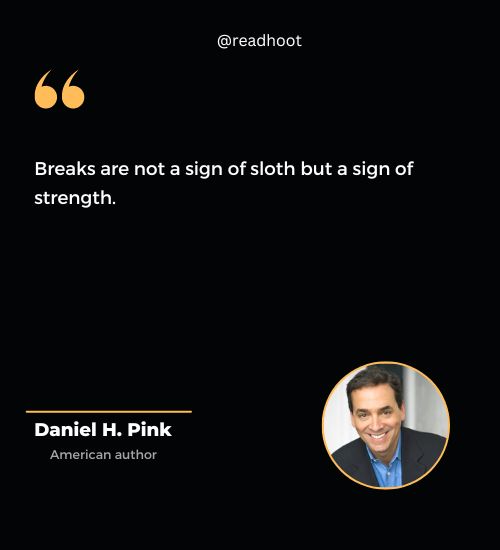
We simply don’t take issues of when as seriously as we take questions of what.
Management isn’t about walking around and seeing if people are in their offices.
Regret is not dangerous or abnormal, a deviation from the steady path to happiness. It is healthy and universal, an integral part of being human.
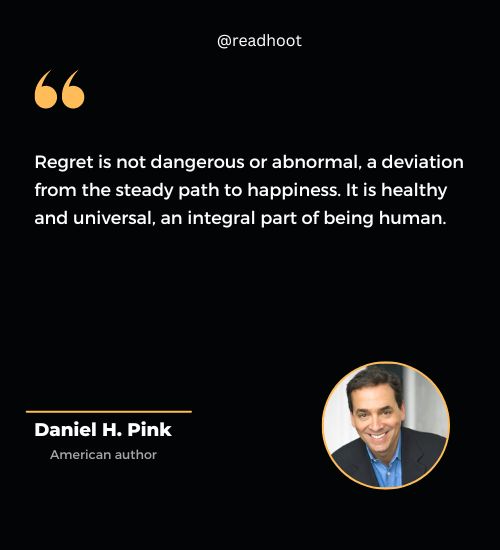
Connection regrets are the largest category in the deep structure of human regret.
We often understand something better when we see it in comparison with something else than when we see it in isolation.
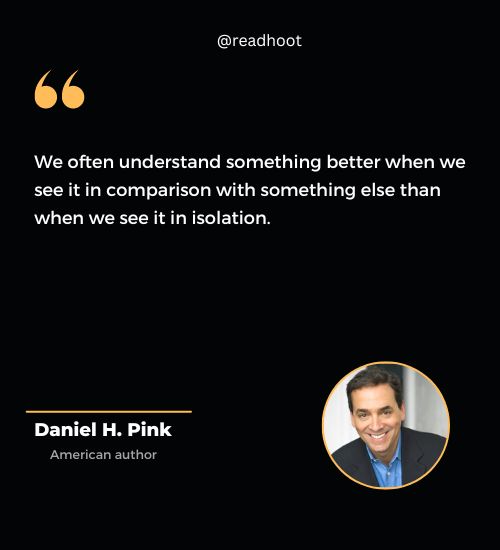
The future belongs to a very different kind of person with a very different kind of mind—creators and empathizers, pattern recognizers, and meaning makers.
Human beings have an innate inner drive to be autonomous, self-determined, and connected to one another. And when that drive is liberated, people achieve more and live richer lives.
We have three innate psychological needs—competence, autonomy, and relatedness. When those needs are satisfied, we’re motivated, productive, and happy.
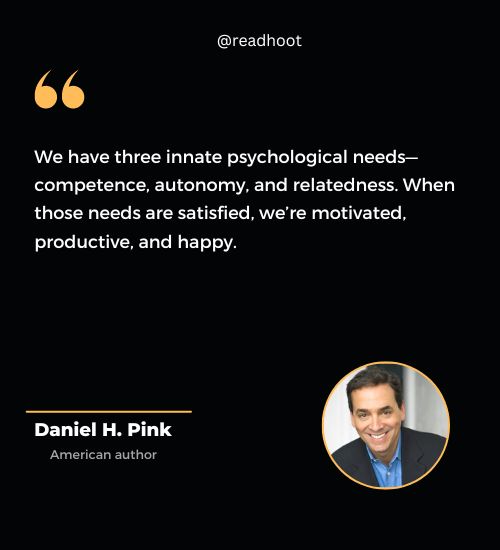
Temporal landmarks slow our thinking, allowing us to deliberate at a higher level and make better decisions.
The monkeys solved the puzzle simply because they found it gratifying to solve puzzles. They enjoyed it. The joy of the task was its own reward.
The future belongs to a very different kind of person with a very different kind of mind – creators and empathizers, pattern recognizers, and meaning makers.
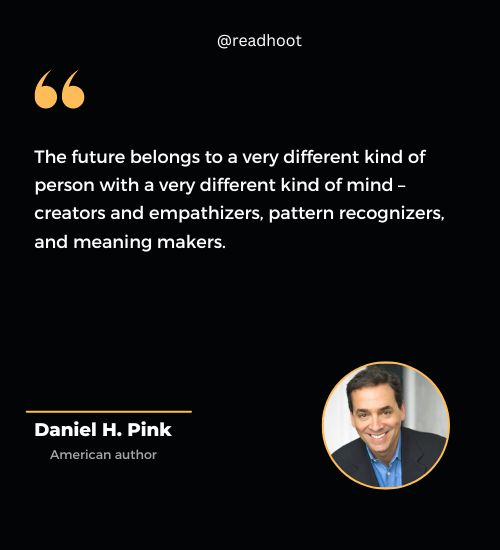
Leadership is about empathy. It is about having the ability to relate and to connect with people for the purpose of inspiring and empowering their lives.
Large companies are not going to disappear. Multinational companies with tens of thousands of employees are not going to disappear. In fact, many of them are getting larger because they can benefit from economies of scale.
Rewards do not undermine people’s intrinsic motivation for dull tasks because there is little or no intrinsic motivation to be undermined.
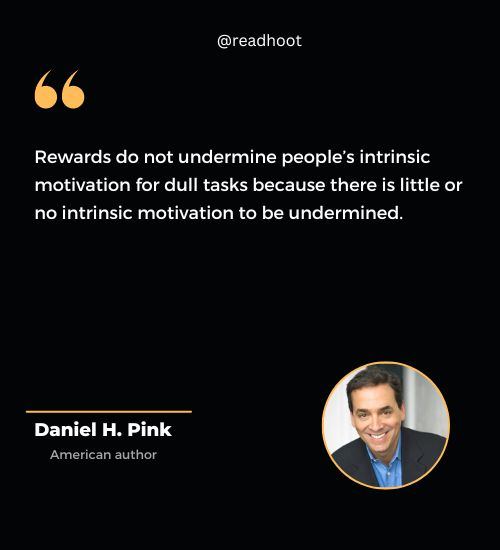
A calling is the most satisfying form of work because, as gratification, it is done for its own sake rather than for the material benefits it brings.
To sell well is to convince someone else to part with resources—not to deprive that person, but to leave him better off in the end.
Asking “Why?” can lead to understanding. Asking “Why not?” can lead to breakthroughs.
Anytime you’re tempted to upsell someone else, stop what you’re doing and upserve instead.
The ultimate freedom for creative groups is the freedom to experiment with new ideas. Some skeptics insist that innovation is expensive. In the long run, innovation is cheap. Mediocrity is expensive—and autonomy can be the antidote.
All of us want to be part of something bigger than ourselves, something that matters.
Empathy is about standing in someone else’s shoes, feeling with his or her heart, and seeing with his or her eyes. Not only is empathy hard to outsource and automate, but it makes the world a better place.
Intrinsic motivation is conducive to creativity; controlling extrinsic motivation is detrimental to creativity.
When the reward is the activity itself – deepening learning, delighting customers, doing one’s best – there are no shortcuts.
Change is inevitable, and when it happens, the wisest response is not to wail or whine but to suck it up and deal with it.
Money can extinguish intrinsic motivation, diminish performance, crush creativity, encourage unethical behavior, foster short-term thinking, and become addictive.
One of the best predictors of ultimate success in either sales or non–sales selling isn’t natural talent or even industry expertise, but how you explain your failures and rejections.
Goals may cause systematic problems for organizations due to narrowed focus, unethical behavior, increased risk-taking, decreased cooperation, and decreased intrinsic motivation. Use care when applying goals in your organization.
The ultimate pitch for an era of short attention spans begins with a single word – and doesn’t go any further.
Human beings have an innate inner drive to be autonomous, self-determined, and connected to one another. And when that drive is liberated, people achieve more and live richer lives.
Symphony is the ability to see the big picture, connect the dots, and combine disparate things into something new. Visual artists in particular are good at seeing how the pieces come together.
Have you ever seen a six-month-old or a three-year-old who’s not curious and self-directed? I haven’t. That’s how we are out of the box.
Psychological detachment from work, in addition to physical detachment, is crucial.
The ultimate freedom for creative groups is the freedom to experiment with new ideas.
The typical worker reaches the most unproductive moment of the day at 2:55 p.m.













